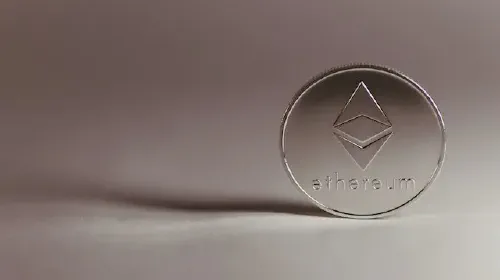Monero vs Zcash: A Comprehensive Comparison
Salomon Kisters
Aug 24, 2023This post may contain affiliate links. If you use these links to buy something we may earn a commission. Thanks!
Are you interested in cryptocurrencies?
Specifically, are you intrigued by the concept of private and secure transactions?
If so, you’ve probably come across Monero and Zcash. These two cryptocurrencies have gained popularity due to their focus on privacy, but what sets them apart?
In this blog post, we will compare Monero and Zcash, examining their similarities and differences, so that you can make an informed decision about which one may be right for you.
An Overview of Monero and Zcash
Before we dive into the specifics, let’s briefly explore what Monero and Zcash are all about.
Monero
Monero, launched in 2014, is an open-source cryptocurrency that prioritizes privacy and security. It uses a unique technology called “ring signatures” to ensure the anonymity of transactions. Additionally, Monero implements stealth addresses and confidential transactions, making it highly privacy-focused.
Zcash
Zcash, on the other hand, was introduced in 2016. It also emphasizes privacy but takes a different approach. Zcash employs a technology called “zero-knowledge proofs” known as zk-SNARKs. This cryptographic method allows users to shield transaction data without disclosing any sensitive information.
Now that we have a general understanding of both cryptocurrencies, let’s proceed to delve deeper into their similarities and differences.
Privacy Features
Both Monero and Zcash have privacy as their main selling point. Let’s compare how they achieve this and the level of privacy they offer.
Monero’s Privacy Features
Monero utilizes ring signatures, which mix a user’s transaction with others, making it challenging to trace the origin or destination of funds. This ensures that transactions are unlinkable and untraceable. Moreover, Monero implements stealth addresses, which generate a new address for each transaction, keeping the recipient anonymous.
Zcash’s Privacy Features
Zcash, on the other hand, takes advantage of zk-SNARKs, which allow transactions to be verified without revealing the details of those transactions. This ensures that senders, recipients, and amounts remain confidential.
In terms of privacy, Monero and Zcash both excel at protecting user identities and transaction details. However, Monero’s approach of mixing transactions provides a higher level of privacy as it obfuscates the origins of funds and the recipients. Zcash, while still maintaining privacy, allows for optional privacy where users can choose to transact privately or publicly.
Transaction Speed and Scalability
One crucial aspect to consider when evaluating cryptocurrencies is transaction speed and scalability. Let’s examine the transaction speed of Monero and Zcash to see how they compare.
Monero’s Transaction Speed
Monero’s privacy-focused approach comes at a cost in terms of transaction speed. Due to the complexity of its privacy features, Monero transactions generally take longer to process, leading to slower confirmation times. Additionally, Monero’s block size limit of 2 Mb can limit scalability.
Zcash’s Transaction Speed
Zcash, on the other hand, is designed to offer faster transaction speeds. By using zk-SNARKs, Zcash reduces the computational requirements for verifying transactions, resulting in quicker confirmation times. However, it’s worth noting that Zcash’s transaction speed may vary depending on whether the transaction is initiated privately or publicly.
When it comes to transaction speed and scalability, Zcash is the winner. Its use of zk-SNARKs enables faster transaction confirmations and potentially better scalability, making it more suitable for those seeking quick and efficient transactions.
Mining Algorithm and Decentralization
Another aspect to consider when comparing cryptocurrencies is the mining algorithm and overall decentralization. Let’s take a close look at Monero and Zcash in this regard.
Monero’s Mining Algorithm
Monero uses a mining algorithm called CryptoNight, which is ASIC-resistant. This means that mining Monero can be done using a regular CPU or GPU, ensuring a level playing field for the community and keeping mining power decentralized.
Zcash’s Mining Algorithm
In the case of Zcash, it initially used the Equihash mining algorithm, which was also ASIC-resistant. However, ASICs have been developed for Equihash in recent years, potentially reducing the decentralization aspect. Zcash has since switched to the Equihash-based algorithm, Equihash-R, aiming to maintain ASIC resistance.
When it comes to mining algorithms and decentralization, Monero has a clear advantage. Its ASIC-resistant algorithm ensures that anyone can participate in the mining process using consumer-grade hardware, affording a more decentralized network.
Community and Development
The strength and dedication of a cryptocurrency’s community and development team can greatly influence its success and future improvements. Let’s compare the communities and development aspects of Monero and Zcash.
Monero’s Community and Development
Monero’s community has been steadily growing since its inception, reflecting a passionate and engaged user base. The project is continuously developed and maintained by a dedicated team of developers who prioritize privacy and security. Monero’s commitment to community-driven decision-making and its active development make it a strong and resilient cryptocurrency.
Zcash’s Community and Development
Zcash also boasts an active community and development team, focusing on privacy and innovation. The Zcash Foundation and the Electric Coin Company, two organizations dedicated to advancing cryptocurrency, support its development. Zcash benefits from ongoing research and improvements, ensuring its relevance in the rapidly evolving world of cryptocurrencies.
Both Monero and Zcash have thriving communities and dedicated development teams. However, Monero’s community-driven decision-making and long-established development make it stand out as a more resilient and battle-tested currency.
Conclusion
In summary, Monero and Zcash are both privacy-focused cryptocurrencies, but they differ slightly in their technical approach and specific features.
Monero excels in providing a high level of privacy and transaction anonymity, suitable for those seeking the utmost confidentiality. Zcash, on the other hand, offers the choice of optional privacy and faster transaction speeds, making it more convenient for users who prioritize efficiency.
Ultimately, choosing between Monero and Zcash depends on your individual requirements and priorities. If you value absolute privacy and anonymity, Monero may be the ideal choice for you.
On the other hand, if you seek a balance between privacy and transaction speed, Zcash offers a compelling alternative.
Whichever cryptocurrency you choose, both Monero and Zcash have proven themselves as powerful tools for secure and private transactions in the increasingly digital and interconnected world we live i
Stay informed with the latest insights in Crypto, Blockchain, and Cyber-Security! Subscribe to our newsletter now to receive exclusive updates, expert analyses, and current developments directly to your inbox. Don't miss the opportunity to expand your knowledge and stay up-to-date.
Love what you're reading? Subscribe for top stories in Crypto, Blockchain, and Cyber-Security. Stay informed with exclusive updates.
Please note that the Content may have been generated with the Help of AI. The editorial content of OriginStamp AG does not constitute a recommendation for investment or purchase advice. In principle, an investment can also lead to a total loss. Therefore, please seek advice before making an investment decision.

Polygon vs. Ethereum: Key Differences Explained | SEO Blog
Learn about the key differences between Polygon and Ethereum, two prominent Proof-of-Stake networks enabling DeFi trading and NFT interactions.

Recognizing and Reporting Cybercrime
Learn how to identify and report cybercrime in this informative blog post. Protect yourself from online scams and keep your personal information secure.

Digital Payments Revolutionizing Tourism: Convenience, Security, Efficiency
Learn how digital payments are revolutionizing the tourism industry, offering convenience, security, and efficiency for both travelers and businesses.
Protect your documents
Your gateway to unforgeable data. Imprint the authenticity of your information with our blockchain timestamp